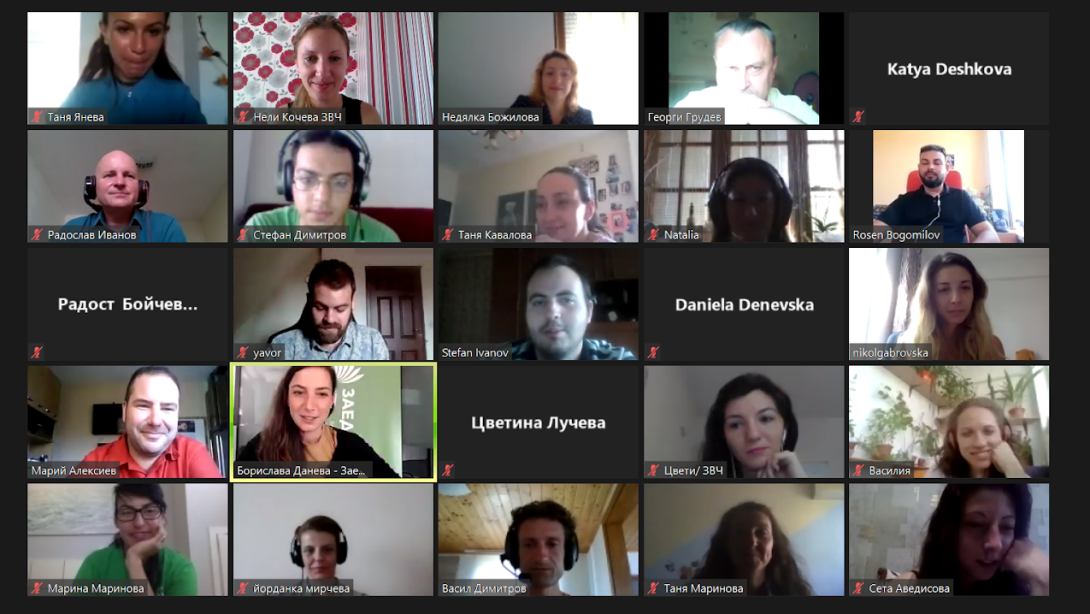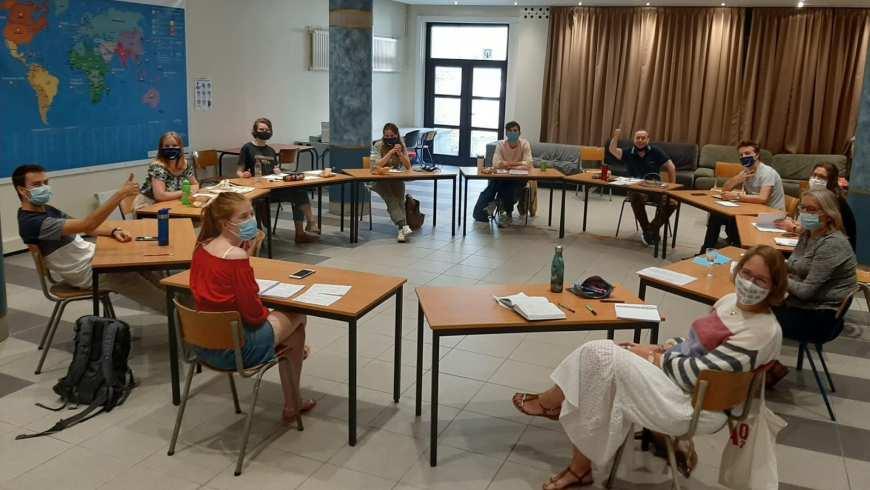Network Partners Developed Virtual Pre-Service Trainings in Response to the Global Pandemic

While the COVID-19 pandemic has resulted in numerous unforeseen challenges for us all, it has also pushed many Teach For All network partners to reimagine how they think about pre-service training and development for incoming teachers. Generally incorporating pedagogy, practice, and content knowledge along with practical teaching experience, these trainings—often called Institutes—are the crucial first step in a professional development program that continues throughout participants’ two-year teaching commitments. This year however, the pandemic meant that partners across our global network had to quickly pivot and adjust their plans to deliver their trainings virtually.
In spite of the unexpected need to rethink and revise the design of their programs, many partners saw encouraging results. Teach For America found that the four week virtual summer training program held for 3,000 incoming teachers in place of a traditional Summer Institute resulted in stronger results than previous years. The improvement was seen in the culture, experience, and outlook of the participants, with close to 90% reporting that the training helped them gain the knowledge, skills, and mindsets they need as new teachers—a few even made a parody YouTube video that illuminates the resilience and community built from their shared experience. Teach For America has been evaluating its plan for future summers in light of these encouraging results, and anticipates building on the virtual summer content, in addition to in-person activities that provide practical experiences and local community building for the teachers.
Similarly, Enseñá por Argentina observed that, although participants did not know each other before meeting in the virtual sessions, by the end of the training seminar they had formed an extremely close-knit community. “The climate was magnificent, respectful, empathetic—I never imagined that virtual spaces were hiding this possibility," explained a participant named Maleiska. "We care and we work to create bonds of fraternity.” A key factor that helped foster this sense of connection and community were the collaborative spaces and activities Enseñá por Argentina built into their sessions.
Teach For Lebanon and Teach For Morocco both led fully virtual Summer Institutes, focusing on both pedagogical frameworks and practical classroom techniques. A record number of nearly 120 participants engaged in Teach For Bulgaria’s Online Summer Institute, which was similarly composed of theoretical and practical sessions. “The Online Summer Institute is a great opportunity for our entire team to learn and to grow,” explained Marian Rankov, Head of Teacher Development at Teach For Bulgaria. “The knowledge that we acquired throughout it will enable us to make the most out of the different formats and, more importantly, it will provide us with a clearer vision for the options that lie ahead."

Adapting the content and structure of their training sessions for a virtual format and the unique circumstances the pandemic presented was critical to success for many partners. Recognizing that virtual meetings are more draining for participants than in-person workshops, Enseña por México made the decision to reduce the number of hours teachers spent in sessions each day. Additionally, the training and development team incorporated multiple e-learning tools into their sessions so that participants could learn about and experience the various platforms from the perspective of their students. Teach For Pakistan made a point of maintaining some of their in-person traditions by adapting them to a virtual setting. For example, they continued their ritual of acknowledging small but meaningful things about one another to nurture a culture of belonging and an environment of support by sharing these acknowledgments through online platforms like Padlet (screenshot at right).
Teach For Vietnam had to pivot and re-design their summer institute, which was initially planned to be a combination of virtual and in-person learning, just a few days before it was scheduled to begin when a rise in COVID-19 cases resulted in a lockdown. This shift inspired the institute team to add an additional week of training for the new teachers, specifically focused on developing their online teaching skills.

Midway through Teach For Belgium’s Summer Training Institute, a second wave of COVID-19 led them to develop a virtual version of their annual summer schools. Beginning in early August, over 300 students were able to connect with Teach For Belgium’s new cohort of teachers every day from their homes or school computer labs to participate in online classes. “Reinventing ourselves in such a short time wasn’t easy,” noted Teach For Belgium CEO Caroline Cartier. “But we are also learning a lot and seeing opportunities for the future in the challenges we are facing now.”
Ultimately, despite the challenging situations that prompted a switch to delivering pre-service trainings online, partners across the network were able to draw valuable insights from pivoting to virtual, and many are already thinking about how they can continue to incorporate key learnings and virtual elements into their sessions post-pandemic.



